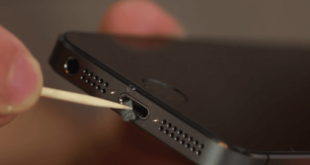If you have a LG V20 android Smartphone and you want to Install Lineage OS 17.1 for LG V20 safely then you are in the right place. This simple article will guide you to Upgrade LG V20 to Android Q with LineageOS 17.1 (Official).
The LG V20 comes with Chipset Qualcomm MSM8996 Snapdragon 820 (14 nm), CPU Quad-core (2×2.15 GHz Kryo & 2×1.6 GHz Kryo), GPU Adreno 530, Internal 32GB 4GB RAM, 64GB 4GB RAM, Main Camera 16 MP, f/1.8, 29mm (standard), 1/2.6″, Laser AF, 3-axis OIS + 8 MP, f/2.4, 12mm (ultrawide), 1/3.2″, no AF, and Selfie Camera 5 MP, f/1.9.

Android 10 is Google’s 10th version of Android OS with many new features and system UI changes. Google doesn’t accompany any dessert item name for the new Android version this point and that’s an honest move. With the new released Android 10 ASCII text file , the Lineage team has started performing on Lineage OS 17 for all the supported device.
Why Lineage OS 17.1 and not 17.0?
The Android 10 source code opens the way to AOSP in September 2019, and the LineageOS team has worked hard to bring their ROMs and design features to the base of the new Android version. AOSP, as yet, has done a large amount of refactoring in certain areas, which has made transport longer than expected.
Meanwhile, the December 2019 Android Security Bulletin was released by Google, and the LineageOS team decided to change the more fully featured Google Pixel 4 / 4XL AOSP tag. Because of this, the team has also decided to jump into subversion, going from 17.0 to 17.1. For the future too, if there is a large scale rebasing carried out on a different tag, the team will jump on the subversion number.
As a consequence of this jump, the team will lock all branches of Lineage-17.0 to contribute to their Gerrit, and ignore 17.0 of the changes. Developers are still free to change the cherry-pick to 17.1.
Features in LineageOS 17.1
LineageOS 17.1 membawa beberapa fitur baru ke keluarga ROM:
- New partial screenshot UI that lets you hand-select smaller parts of your screen and edit the screenshots.
- New adapted ThemePicker app from AOSP, with support for the usual range of accents, font change, icon (both QuickSettings, and Launcher) shape, and icon resource changes (eg. changing the shape of the Wi-Fi/Bluetooth icons).
- Use fingerprint sensor to hide and protect apps within Trebuchet Launcher
- Merge October, November, December 2019, January 2020, February 2020, and March 2020 security patches.
- Wi-Fi Display is available once again.
- Support for on-screen fingerprint sensors (FOD) added.
- Support for pop-up and rotating cameras added.
- WebView updated to Chromium 80.0.3987.132.
- ROM is currently based on AOSP’s android-10.0.0_r31 tag, which is the Pixel 4/4 XL’s tag.
Further changes
Lineage Recovery
Lineage also switches to Lineage Recovery as the default solution for installing LineageOS. Lineage Recovery will be built by default for all officially supported devices. The team mentioned that this change was made solely to streamline their own processes and not deter users from other custom recovery. Device managers maintain the freedom to recommend alternative recovery on their device’s Wiki page in addition to full instructions for use.
AOSP’s Permission Hub and LineageOS’s PrivacyGuard
We’ve talked about these changes in the past, and now the changes are finally here. LineageOS 17.1 dropped support for the implementation of a homemade PrivacyGuard that supports the AOSP Permission Hub because the team cannot port the PrivacyGuard framework to Android 10. Google has not released a Permission Hub with Android 10, but the code for that still exists in AOSP. So, the Lineage team cut it off and now presents it as a solution because it is claimed to be almost equal in features, but contradicting in an effort to coexist with PrivacyGuard.
Rooting — no addonsu binary support
As a by-product of removing PrivacyGuard and switching to the Permission Hub, the addonsu binary that is usually offered as a simple root access solution is no longer feasible, as we have previously explained. Users interested in root have the option to use ADB root, or flash compatible third-party solutions such as Magisk. The team clarifies that this does not mean that certain third-party solutions are authorized as official support – so you still need to be careful about root solutions that work in harmony with your ROM.
Deprecation of Styles API
The Styles API is also now becoming obsolete because it supports the AOSP ThemePicker application. The team claims full feature parity, and even feature excellence with ThemePicker.
How To Install Lineage OS 17.1 for LG V20 based Android 10 Q
First, unlock the LG V20 bootloader and make sure you have installed latest TWRP Recovery.
Pre-Requirements:
- This is Android 10 based Lineage OS 17 file and supported for LG V20 only.
- Make sure your device has more than 50% battery for a smoother process.
- Make sure you have taken a backup of your important data. In case anything goes wrong, you can easily restore all the data. *Opsional
Download Links:
- Download LineageOS 17.1 for LG V20 (AT&T), LG V20 (T-Mobile), LG V20 (US), LG V20 (Sprint), LG V20 (International), LG V20 (Verizon)
- Download latest GApps 10.0 | OpenGApps (Mirror)
Instructions to Install:
- Make sure that you have downloaded all the required files on your device.
- Now transfer the downloaded files to the internal storage of your device.
- Now reboot to the TWRP recovery by holding your power and volume down buttons together for a few seconds.
- Select “Wipe” from TWRP main menu and Select Advanced Wipe > Select the data, system, vendor, cache. Then “Swipe” on the bottom of screen.
- In TWRP Recovery menu, tap on Install button > Install Image > Select the TWRP Image file from the location where you have moved earlier.
- Go back to TWRP main menu, tap on “Install” and select the ROM .zip file that you transferred to your device in Step 1.
- After selecting the .zip file, do “Swipe to Confirm Flash” on the bottom of screen to begin the custom ROM installation process. This may take some time.

- Once your ROM is successfully flashed, you’ll see “Wipe cache/dalvik” option, select it and then do “Swipe to wipe” on bottom of screen.
- Now flash the Gapps file similarly like you flashed the ROM file.
- Finally, after flashing both ROM and Gapps, reboot your phone into a new system. Wait for it, as the boot process will take a few minutes.

- Finish!!
Well maybe it’s just this tutorial about Install Lineage OS 17.1 for LG V20 based Android 10 Q. I would expect to see more articles. Hopefully the tutorial is useful. If you want to request articles or provide suggestions & criticism please contact me at Contact Me. If anyone wants to ask please leave a comment, and do not forget like Facebook fanpages genkes.

 Genkes How To and Reviews Technology
Genkes How To and Reviews Technology


